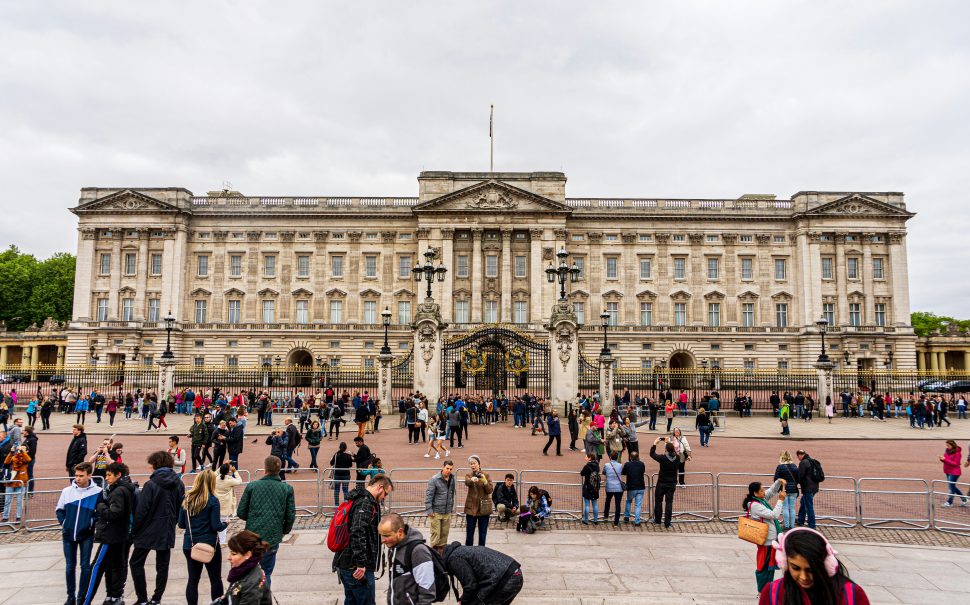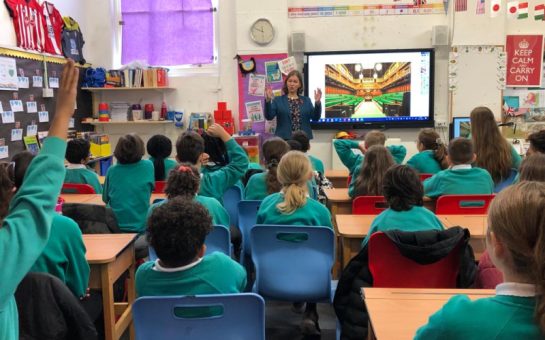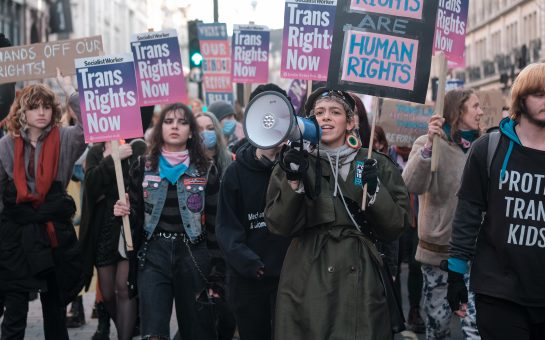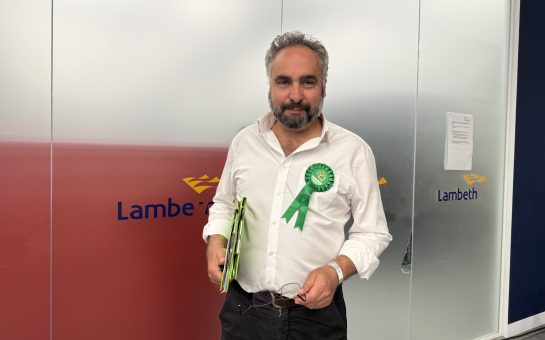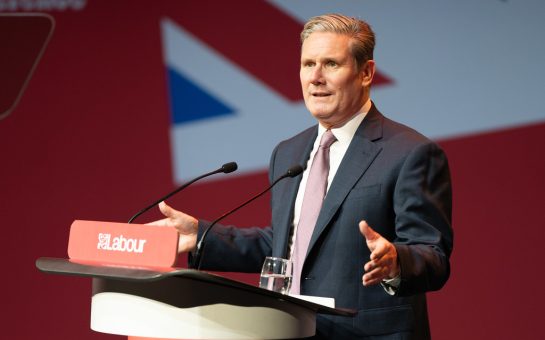The Cities of London and Westminster is one of those constituencies almost exclusive to London, where the mansions of Mayfair mingle intimately with social and world-famous tourism attractions.
Never before has the British Monarch woken up in Buckingham Palace with a Labour MP as their elected representative.
But on July 5th, this could conceivably happen with the seat projected to flip from blue to red, although it was Liberal Democrat Chuka Umunna who ran Conservative Nickie Aiken closest in 2019.
It was against this backdrop that I headed to Central London to meet some of the eleven people hoping to become the elected representative of such a diverse and nationally significant area at this weeks general election.
I first meet Edward Lucas, the Liberal Democrat candidate, as he takes a break from pounding the streets with his loyal team of campaigners.
They assemble in St John’s Wood, an affluent area of London that looked like the kind of place AI would produce if you asked for an American perception of London based on Hugh Grant films and Paddington Bear books.
The team are confident.
They lost by less than 4,000 votes in 2019, with the loss of Conservative popularity nationwide being forecast to be replicated in the constituency.
Lucas said: “I believe we can win, Nickie was a popular local MP but having stepped down, those votes may well be distributed amongst other parties.”
Lucas is measured, evidently intelligent and perhaps wins the award for best social media production after his dog takes centre stage in his attack on the failure of the Tory’s since 2010.
He is keen to tackle “dirty money”, more specifically foreign money which he believes influences our political system and poses a significant national security risk.
Lucas is well placed to comment, with his experience in security seeing him being called as a witness during Parliament’s Intelligence and Security Committee which investigated Russian influence in Britain.
When the Conservative government failed to publish the findings of the committee, Lucas, who worked for Lib Dem leader Paddy Ashdown in the 1980s, decided to stand at the next general election.
He spoke openly about this election’s elephant in the room: Brexit, and the damage it has caused – a popular opinion in an area which voted overwhelmingly to remain in 2016.
I then find myself in Piccadilly, dodging tourists and avoiding the remnants of last night’s antics in Soho as I travel to meet Conservative candidate Tim Barnes.
Barnes is not your stereotypical Tory candidate.
A local councillor and CEO of a charity for young people, he has previously lost a general election campaign to Sir Keir Starmer in Holburn and St Pancras.
In a general election which has seen his party fight amongst themselves for the few remaining safe seats, he seems to rise above party peacocking and talks passionately about the area he hopes to represent.
He lives here and knows it intrinsically, with strong views on the local 55 bus’s emissions and the local borough’s contractual arrangements with the providers of E-bikes.
Barnes could become the first Conservative candidate to lose an election in this area since William Montagu lost to John Shelley of the Whig party in 1852, bu that doesn’t seem to faze him.
Barnes said: “I have fought council elections in the past where we struggled to come third, I’ve run for the European Parliament, and you run because there is a thing you believe in and an area you want to represent.
“For me, I have always wanted to represent the place where I live and you want to put yourself forward to represent the community that you believe in and you are part of.”
Barnes makes little attempt to deny the disastrous running of the national Conservative campaign but indicates that some of the high-profile gaffes have been overblown.
Barnes said: “The general impression and the media narrative doesn’t help, people absorb it.
“If you take the D-Day episode, not withstanding the fact that Blair came back early and others, my Mum who is in her 80s has a friend whose brother died in Northern France, who said we are represented by the King, I don’t understand why politics is brought into it.
“But the truth is, I haven’t really found anybody talking about these things on the doorstep.
“It is rather who are you and local issues or bigger points around the economy.”
Barnes is keen not to overpromise on things he might achieve if elected, wary of the waning power of MPs in opposition, but has vowed to tackle the misuse of E-bikes, petty crime and housing in the area.
One of the key talking points of this general election campaign has been the rise of Reform UK and the impact they could have in splitting the Conservative vote.
Barnes was relaxed on the threat posed by Reform in the constituency and given the area’s views on Europe, he is probably within his rights to be.
But to be dismissive of emerging parties who could potentially gain a significant share of the national vote is both wrong and dangerous.
Thus I found myself in the flat of Tarun Ghulati, the Reform candidate for Cities of London and Westminster.
In order to imagine Ghulati, you must first place every stereotype of right-wing political party candidates you have ever seen in the bin.
He does not fit the convenient Reform profile.
He is of Indian descent, is well educated and has had a successful career in banking and the charity sector.
Ghulati came into politics after being mugged close to his home and receiving an unsatisfactory response from the Metropolitan Police.
Naturally, crime is an area that he vows to address, and he supports his parties plans for 40,000 extra police officers, preference for the recruitment of military veterans and introduction of police hubs to combat the closure of police stations.
On why he chose to stand for Reform, having stood as an independent candidate in this year’s London mayoral race, Ghulati said: “The two-party system is broken, the Conservatives and Labour are two sides of the same coin.”
He is glowing in his praise for Reform UK’s leader and Clacton parliamentary candidate Nigel Farage, who he describes as a leader who only comes around once a century.
As somebody who refers to himself as an immigrant, the obvious question is why he holds Farage in such high esteem given his previous comments on immigration.
Ghulati said: “He is not against immigration, he is against illegal immigration, making sure it does not stretch public services.”
Ghulati, who is bilingual, is also not concerned by Farage’s statements on his dislike of hearing foreign languages spoken in Britain.
Last month, Farage told the BBC that he had been to areas of Oldham where nobody spoke English, despite being reminded by the host that those people may well speak English as a second language.
Ghulati made claims as if he was reciting elements of the Reform Party’s website, but struggled to back them up when exposed to the slightest scrutiny.
He points to 6000 EU laws that still dictate the way in which Parliament is able to govern, yet when pressed to name one of these he cites the European Convention on Human Rights (ECHR) – a human rights treaty between the 47 states that are members of the Council of Europe (CoE), not to be confused with the European Union.
Brexit has developed in five years from being the central theme of the 2019 election to becoming the elephant in the room this time around.
Given that the constituency voted overwhelmingly to remain in the EU, did Ghulati believe a party led by one of the architects of Brexit can perform well here?
Ghulati avoided the question, pointing instead to his 40-year career, service to non-profit organisations and the dangers of a Labour mayor working with a Labour government.
When pressed, Ghulati claimed to have converted many remainers on the benefits of Brexit before talking about his frustrations of not making a full, clean break from the EU.
Ghulati says: “Benefits of Brexit will come when we exit things like the ECHR and others and take the law into our own hands.”
Forgive me if my memory is hazy on the Leave campaign promising to remove a legal treaty that protects the right to vote, ensures fair trials and prohibits torture during the lead up to the referendum.
Ghulati was difficult to work out.
On one hand he was likeable, charming and well meaning, a person who sees issues in his community and puts his hand in his pocket to fund a campaign to help force change either as a party candidate or independent.
But on the other, he parroted Reform talking points without seemingly interrogating the data himself before repeating it.
He was a man who spoke broadly on subjects, often without giving specific examples or being able to back up spurious claims, a trait all too common in politics and largely responsible for the apathy directed towards MPs.
So on July 4th, the constituents of Cities of London and Westminster have a vast array of candidates to choose from.
In many ways they are spoilt for choice.
There are local residents, charity leaders, business leaders, writers and career politicians.
Fundamentally, in an age of political toxicity, there are people who come from different backgrounds, with different political standpoints united in the desire to improve their community, brave enough to put their hat in the ring and stand.
The seat is close, the 2019 general election majority thin and polling famously unreliable.
As many as 11 candidates may believe they can win but three have a realistic chance of doing so.
The power lies in the hands of those of Cities of London and Westminster who choose to exercise their right to vote at the General Election on July 4th.
*Labour party candidate Rachel Blake and Independent candidate Mathew Carr were approached to participate but declined to do so.
Photo by Sung Shin on Unsplash
